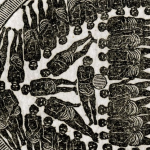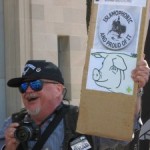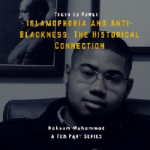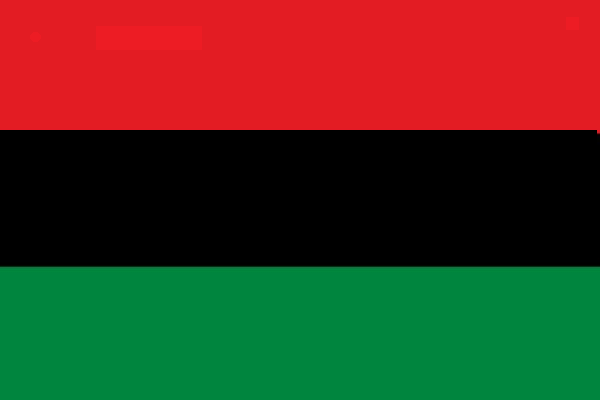
From the griots of wealthy empires of West Africa to the poets in America’s black ghettoes, the Prophet Muhammad has been a central figure in poetry of the African diaspora. Such poetry has lauded the Prophet for his sublime character and inspired the masses to emulate the virtuous principles that he exemplified in his Sunnah. In this article, we will examine poems throughout the African Disaporia in honor of Allah’s final messenger.
West Africa
As a young West African student, Uthman Dan Fodio discovered his teacher Shaky Jabril was venturing to Medina in order to visit the holy Prophet’s grave. Fodio desperately desired to accompany his shaykh on this spiritually uplifting journey. However, Fodio’s father was out of town and Jabril would not allow Fodio to accompany him on his travel without the consent of his father. In response to his inability to visit the Prophet’s grave at t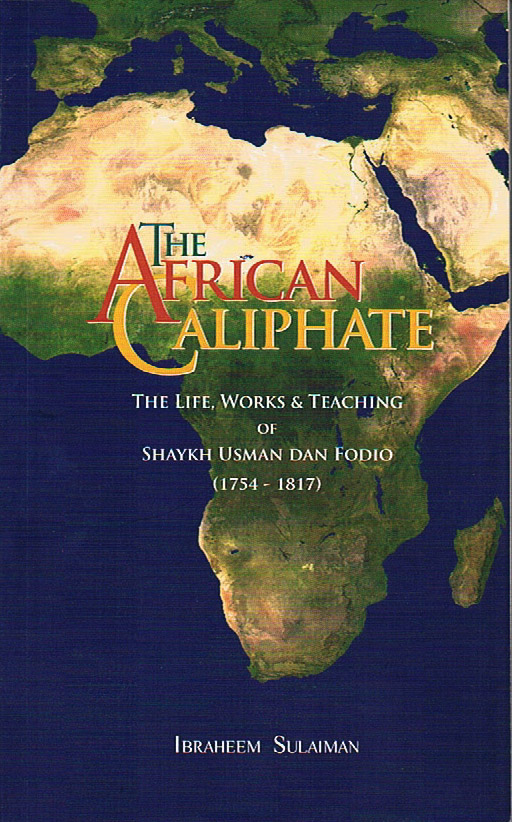 hat time, Fodio wrote a heartbreaking poem.
hat time, Fodio wrote a heartbreaking poem.
While many people derive pleasure and happiness from the temporal materialistic trinkets of the worldly life, Fodio states, “Truly for me, there are no pleasures and joys in life without Muhammad.” As a result of his inability to visit the tomb of the Prophet, Fodio states, “I went away bathed in tears, tears falling like a downpour, Yearning towards that Prophet Muhammad.” While Fodio had a reputation of being a noble and pious man, he refers to himself as a “sinful insignificant slave” who has merely benefited from Allah’s mercy in concealing his numerous sins, which he hopes to redeem himself from. In pursuit of this moral rectification, Fodio states, “There is no sanctuary except by the virtues of Muhammad.”
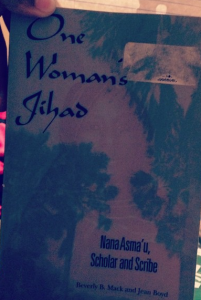 Nana Asmau, also a West African Islamic scholar, in poems such as “In Praise of Ahmada” and “Remembrance of the Prophet” extols the Prophet Muhammad for a plethora of traits he posed. Nana Asmau honors the Prophet for his bravery and heroism by testifying, “No warrior has ever matched the courage shown by Ahmada.” Not only did the Prophet have the best of morals but Nana Asmau states, “As for his beauty and physique, he surpassed all.” Even the best smelling oils and colognes, according to Asmau, “do not equal the perfume emitted by the body of Muhammad.”
Nana Asmau, also a West African Islamic scholar, in poems such as “In Praise of Ahmada” and “Remembrance of the Prophet” extols the Prophet Muhammad for a plethora of traits he posed. Nana Asmau honors the Prophet for his bravery and heroism by testifying, “No warrior has ever matched the courage shown by Ahmada.” Not only did the Prophet have the best of morals but Nana Asmau states, “As for his beauty and physique, he surpassed all.” Even the best smelling oils and colognes, according to Asmau, “do not equal the perfume emitted by the body of Muhammad.”
Nana Asmau states that “wild animals have spoken of you, and trees uprooted themselves to come to you.” By recounting miracles in the Islamic tradition in which even trees sought closeness to the Prophet and animals accepted his prophetic mission, Asmau pinpoints the profound relationship the Prophet had with the natural world in accordance with the Qur’anic status of the Prophet as a mercy to all of creation—not just humans.
The profound love that many individuals had throughout West Africa for Prophet Muhammad motivated movements, calling for people to follow his Sunnah. Shaykh Abdullahi penned a poem exhorting Muslims to “Rise up, and call to religion with a call Which the common people shall answer.” Abdullahi called Muslims to action, telling them “do not fear, in making manifest the religion of Muhammad.”
Abdullahi says that Muslims should have no fear of “the mockery of the ignorant man gone astray … Nor the backbiting of a slanderer.” His poem sought to help people overcome all impediments that would hamper Muslims from calling people to Islam.
Even as African Muslims were the victims of the inhumane transatlantic slave trade, they continued to send peace upon their Prophet. A document recovered from the Islamic slave revolts of Brazil reads: “Peace and blessings of Allah be upon our master the Prophet. O Allah! Lead us to our imminent triumph. Victory is near. So give good news to the believers.” Having undergone centuries of slavery, Islam was wiped out among slaves in the post-slavery era. Blacks under slavery were cut off from the entirety of the Sunni intellectual tradition.
The process of slavery resulted in Africans being “robbed of a knowledge of self” and a transgenerational impact of blacks largely being confined to impoverished neighborhoods. Malcolm X expressed that “In the ghettoes the white man has built for us, he has forced us not to aspire to greater things, but to view everyday living as survival.”
Post-Chattel Slavery Poetry:
Hip-Hop emerged from these tumultuous social conditions that characterized black life in America’s most ostracized neighborhood and endeavored to give a voice to the voiceless.
Known as the poet of Queensbridge, Nas raps of his involvement in gang warfare and announces his intention to carry out a retaliatory attack: “Little Nasir was at war and little did I care what you saw. Crew deep with a few heat, now it’s time we settle the score.” While armed and ready to carry out these retaliatory moves, Nas has a spiritual experience that brings his wanton indulgence in black on black crime to a halt: “In the projects, I envision Muhammad, in linen garments. Preaching man, woman, and child, the living Prophet.” Through his spiritual experience of envisioning the Prophet, Nas is called to aspire for greater things beyond an empty life of black on black crime.
In another poem from Chicago lyricist Lupe Fiasco titled, “Muhammad Walks”, Lupe Fiasco honors the Prophets of God and brilliantly outlines the tenents of the Islamic faith and the purpose behind certain practices. Lupe exalts Muslims to be diligent about observing the rituals of their faith, stating, “You gotta stay on your salats, your zakats, your Quran.” The poem clears up misconceptions about the Islamic faith and reminds Muslims of the blessings that exist within struggle.
Though slavery sought to sever this relationship and love, it would only reemerge and continue to express itself in poems of the African diaspora. From the rich empires of West Africa to the urban ghettoes of America, Muslims of African descent have penned poetry in honor of their Prophet.
Peace Be Upon Him!


